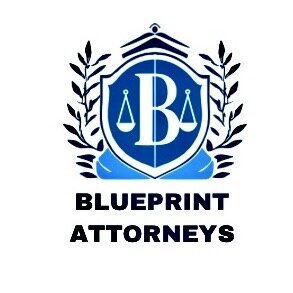Best Project Finance Lawyers in Aba
Share your needs with us, get contacted by law firms.
Free. Takes 2 min.
List of the best lawyers in Aba, Nigeria
About Project Finance Law in Aba, Nigeria
Project finance is a distinct area of law and investment that focuses on funding large infrastructure and industrial projects using a non-recourse or limited recourse financial structure. In Aba, Nigeria, project finance is commonly applied in the development of roads, power plants, manufacturing facilities, and urban infrastructure - all essential for supporting the region's economic growth. The structure typically involves private-sector participation, public-private partnerships, and detailed contractual arrangements to distribute risks between the various parties involved. Because such projects often require significant capital outlay and involve multiple stakeholders, navigating project finance in Aba relies on a firm understanding of Nigerian law as well as local commercial realities.
Why You May Need a Lawyer
Legal professionals play a critical role in project finance transactions. You may need a lawyer if you are:
- Seeking to invest in or develop a large-scale project such as manufacturing plants, commercial real estate, power generation, or basic infrastructure.
- Negotiating complex contracts including loan agreements, security documents, or concession agreements.
- Forming joint ventures or partnerships with other local or foreign investors.
- Dealing with government entities for permits or regulatory approvals.
- Unsure about how to mitigate risks including financial default, environmental liabilities, or changes in government policy.
- Involved in cross-border projects that raise special considerations for foreign investment rules and currency controls.
- Concerned about securing land rights, regulatory compliance, or tax implications associated with large projects in Aba.
A lawyer helps ensure that all legal documents are in order, assists with negotiations, protects your interests, and keeps you compliant with local and national laws.
Local Laws Overview
Project finance in Aba, as in the rest of Nigeria, operates within a legal framework that includes various federal statutes, state regulations, and industry-specific guidelines. Key aspects include:
- Land Use and Acquisition: The Land Use Act governs land rights. Investors must ensure proper title, secure relevant consents, and conform to local zoning regulations.
- Public-Private Partnership Arrangements: Aba, under Abia State regulations and federal guidelines, encourages PPPs for major projects, subject to due diligence, contract vetting, and oversight by state investment agencies.
- Environmental and Social Compliance: National Environmental Standards and Regulations Enforcement Agency (NESREA) and Abia State Environmental Protection Agency require environmental impact assessments for significant projects.
- Financing and Security Arrangements: Facilities are often governed by secured lending laws, including those related to the registration of charges with the Corporate Affairs Commission (CAC) and compliance with the Companies and Allied Matters Act.
- Dispute Resolution: Contracts generally stipulate dispute resolution mechanisms, such as litigation in Nigerian courts or alternative dispute resolution methods like arbitration and mediation, often encouraged for project finance disputes.
- Taxation: Corporate tax, Value Added Tax (VAT), and withholding taxes are regulated by local and federal tax authorities. Understanding incentives or exemptions is crucial to structuring project finance deals.
Frequently Asked Questions
What is project finance and how is it different from traditional financing?
Project finance involves funding large infrastructures or projects where repayment comes primarily from the future cash flows generated by the project itself, rather than the overall creditworthiness of the project sponsors.
What types of projects in Aba usually require project finance?
Typical examples include power generation plants, roads and bridges, water supply systems, real estate developments, and manufacturing facilities.
Can foreign investors participate in project finance in Aba?
Yes, foreign investors are permitted to participate and often bring in capital or expertise. However, they must comply with Nigerian investment laws, including registration with the Nigerian Investment Promotion Commission and adherence to local content requirements where applicable.
What permits or approvals are required for a project finance transaction?
Common requirements include construction and environmental permits, land use approvals, registration of security with the CAC, and often, approval from the relevant governmental ministry or regulatory body.
How is risk typically allocated in project finance deals?
Risks are distributed among the various parties - sponsors, lenders, contractors - through detailed contracts. Each party assumes the risks it is best placed to control, such as construction, operational, market, regulatory, and financial risks.
What role do banks play in project finance in Aba?
Banks are major financiers, providing loans, credit facilities, and other financial instruments. They also require thorough due diligence and may insist on risk mitigation measures such as guarantees or insurance.
Are there special tax incentives for project finance in Aba?
Yes, depending on the industry and the nature of the project, investors may qualify for incentives such as tax holidays, reduced tariffs, or pioneer status under the Nigerian Investment Promotion Commission Act or sector-specific policies.
How are disputes commonly resolved in project finance contracts?
Most contracts encourage alternative dispute resolution, such as arbitration or mediation, though litigation in Nigerian courts is also available. Choosing a preferred method is important at the contract stage.
What happens if a project fails financially?
If the project default, lenders may enforce their security interests, which could involve taking over project assets or initiating insolvency proceedings. Clear contract provisions are essential to clarify the process.
Do I need legal counsel from the beginning of my project?
Yes, involving a lawyer early helps identify potential legal issues, guides negotiations, and ensures a strong legal foundation for the project, reducing the risk of disputes or regulatory setbacks later on.
Additional Resources
If you need more guidance or information concerning project finance in Aba, consider reaching out to:
- The Abia State Ministry of Commerce and Industry - for regulations on local business and industrial activity.
- The Corporate Affairs Commission (CAC) - for company registration and security interests.
- Nigerian Investment Promotion Commission (NIPC) - for foreign investment and incentives.
- National Office for Public Private Partnerships (PPP Office) - for guidelines on PPPs.
- Abia State Environmental Protection Agency (ASEPA) - for environmental compliance and permits.
- Nigerian Bar Association (NBA), Aba Branch - for finding a qualified project finance lawyer.
Next Steps
If you are considering a project finance transaction in Aba, here are the steps to take:
- Outline your project goals, scope, and financing requirements.
- Consult with a project finance lawyer in Aba as early as possible to review your plans and advise on legal and regulatory compliance.
- Identify and engage with potential financial institutions or investors interested in your project.
- Obtain all necessary permits, approvals, and licenses in accordance with local and federal laws.
- Work closely with legal counsel to draft and negotiate all required contracts, including loan agreements and joint venture contracts.
- Stay informed on changes in local laws, regulations, or incentives that may impact your project.
A knowledgeable legal advisor will help you navigate complex project finance structures, coordinate with the appropriate authorities, and protect your interests throughout the life of the project.
Lawzana helps you find the best lawyers and law firms in Aba through a curated and pre-screened list of qualified legal professionals. Our platform offers rankings and detailed profiles of attorneys and law firms, allowing you to compare based on practice areas, including Project Finance, experience, and client feedback.
Each profile includes a description of the firm's areas of practice, client reviews, team members and partners, year of establishment, spoken languages, office locations, contact information, social media presence, and any published articles or resources. Most firms on our platform speak English and are experienced in both local and international legal matters.
Get a quote from top-rated law firms in Aba, Nigeria — quickly, securely, and without unnecessary hassle.
Disclaimer:
The information provided on this page is for general informational purposes only and does not constitute legal advice. While we strive to ensure the accuracy and relevance of the content, legal information may change over time, and interpretations of the law can vary. You should always consult with a qualified legal professional for advice specific to your situation.
We disclaim all liability for actions taken or not taken based on the content of this page. If you believe any information is incorrect or outdated, please contact us, and we will review and update it where appropriate.









